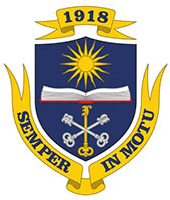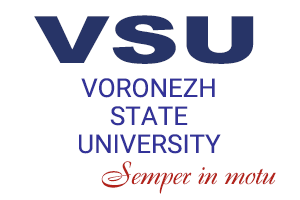A special commission of the Ministry of Education of the Russian Federation has considered the development programmes presented by Russian universities. The best universities will be included in the Priority 2030 programme and can obtain grants by the end of the year.
The development programme of Voronezh State University was presented by VSU Rector Dmitry Endovitsky, Oleg Mosolov, Deputy Chairman of the Government of the Voronezh Region, Alexey Bodrov, Director General of AO Informsvyaz-Chernozemye data provider, Konstantin Fomin, HR Director at AO Chemical Automatics Design Bureau, and Pavel Dreiger, Vice-President of Sitronics IT for Software Products and Solutions. The preparation of the application was supervised by First Vice-Rector and Vice-Rector for Academic Affairs Elena Chupandina.
Dmitry Endovitsky talked about the three development areas of the university within the Priority 2030 programme: Intellectual Systems and High Technologies, Human Capital for Breakthrough Technologies, and Man for the Future: Sports and Intelligence.
“These are the key research areas for our university and the key parts of the modern system of mutually beneficial partnership with the real sector of economy. We have formed a firm basis for the development of effective solutions to the region’s problems. Our aim is to create a regional centre for the development of information technologies and social sphere and to improve the resource centre in terms of digital design, intelligent control systems, and cyber security”, said Dmitry Endovitsky.
Brief overview of the university’s development programme. The mission of VSU is to train highly qualified specialists for the companies operating in the real sector of economy and ensuring the continuous development of the Central Black Earth Region and the country in accordance with the priorities set by strategic government documents and development programmes of the Russian Federation. The objective of the university is to obtain the leading position among the other universities in the region based on key performance indicators.
The strategic project “Intellectual Systems and High Technologies” has three implementation vectors aimed at development of digital doubles, software for automated control systems, and information security systems: digital design in mechanical engineering, agriculture, and healthcare; intelligent control systems in machine building, agriculture, and healthcare; and cyber security.
The aim of the strategic project is to develop innovative intelligent systems for mechanical engineering, agriculture, and healthcare, to promote secure information environment, and to protect people in Russia from destructive information influence.
The strategic project “Human Capital for Breakthrough Technologies” is implemented in three areas: enhancement of professional education in engineering, technologies, and technical sciences; development and implementation of a model of continuous multilevel education in physics and mathematics; creation of a centre for basic and applied mathematical education.
The objective of the project is to train specialists in physics and mathematics for the following areas: mathematics, information technologies, artificial intelligence technologies, mechanical engineering, economics, scientific and technical security, and healthcare.
The strategic project “Man for the Future: Sports and Intelligence” has three implementation vectors: development of sports and recreation environment with facilities for intelligent control of equipment; creation of a centre for mind and cyber sports; informational and psychological support for young people.
The aim of the project is to promote talents of students and school children and develop vital motor, psychological, and cyber sport skills.
The Priority 2030 programme will help to consolidate resources and ensure the contribution of universities to the national development goals of the Russian Federation up to 2030. It will enhance the academic potential of universities and research institutions and facilitate the participation of higher education institutions in the social and economic development of the regions of the Russian Federation.
The aim of the programme is to develop over 100 modern universities in Russia up to 2030, which can become centres for scientific, technological, social, and economic development of the country.


